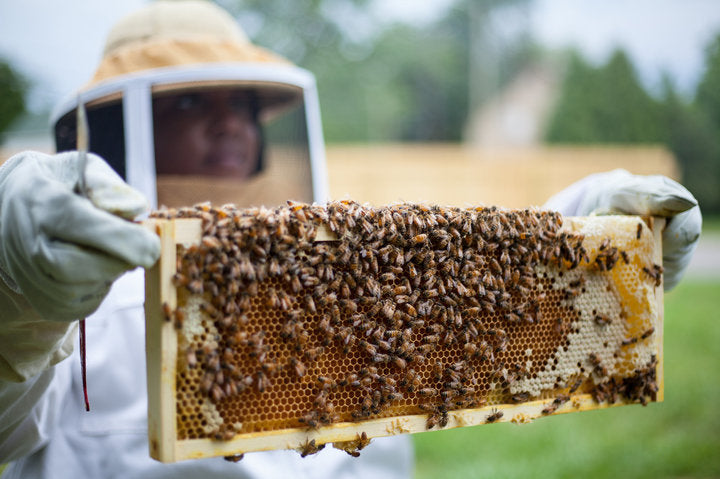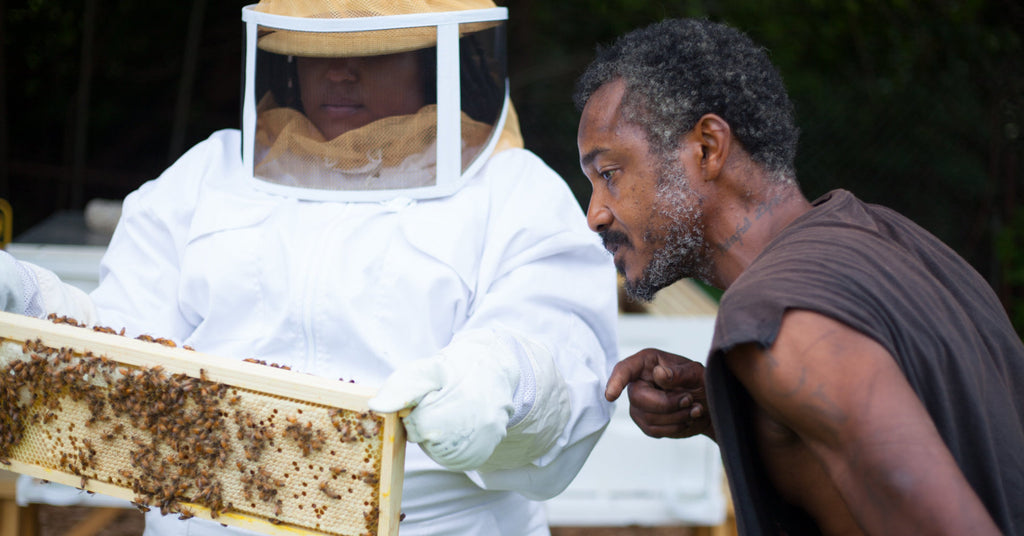
All photo via: Detroit Hives
When Detroit natives Timothy Paule and Nicole Lindsey noticed the numbers of dilapidated and vacant lots in their beloved city rising, they decided to implore a creative new solution to revitalize some of these spaces. Paule and Lindsey co-founded a nonprofit organization called “Detroit Hives” and began to purchase vacant properties and repurpose them into fully functioning bee farms.
“I went to the local market that I normally go to, and he suggested that I try some local honey for my cough,” Paule said as he reflected upon a recent cold that he just couldn’t get rid of as the inspiration behind their efforts to begin to cultivate honey. “He said you consume local honey because it has medicinal properties.”
When he began to feel better, him and his girlfriend Lindsey began to also consider the number of allergies and other health-related reactions that were probably a direct result of the environmental hazards in the growing number of unkept properties in Detroit. They meshed their ideas of helping to reclaim fertile spaces in their city with the seemingly medicinal properties of locally sourced honey created “Detroit Hives.”

Their first order of business was to become certified beekeepers, which they did by completing classes offered by “Green Toe Gardens” and “Keep Growing Detroit.” They purchased their first plot of vacant land with the help of the Detroit Land Bank Authority for $340. “The land bank offers a community partnership program for nonprofits and faith-based organizations to purchase structures or vacant land from the land bank to put back to productive use,” Darnell Adams, director of inventory at the land bank, told HuffPost.

In addition to raising honeybees, Detroit Hives is also committed to spreading awareness about bees and the countless benefits of honey via visits to local schools and community tours of their bee farm. They have also begun to sell their honey to local artisans to be used in locally crafted beers and sauces. Their tagline of “Work Hard, Stay Bumble” is a creative testament to not only their drive and vision for “Detroit Hives,” but also for the very busy bees who work countless hours in their respective roles to create their signature honey.
“We’re hustlers, innovators and thinkers,” Paule said. “Bees work really hard, and they’re humble. In Detroit, you have to work hard and be humble. It’ll take you far.” For more information about Detroit Hives, visit: www.detroithives.com.

